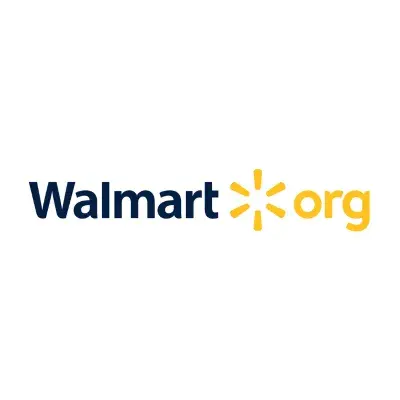Navigating EUDR: compliance and beyond | Palm oil
Supporting businesses with regulatory compliance and advancing sustainability.
Why sustainability legislation matters
Sustainability legislation has expanded rapidly in recent years. Increasingly, addressing issues such as deforestation and human rights risks within supply chains is no longer a voluntary choice by responsible businesses but a legal obligation for all. New regulations have the potential to accelerate the transition to sustainable business practices and deliver positive impacts for people and planet at scale. But they also bring challenges. If not carefully implemented, such legislation may increase administrative burdens without driving meaningful change on the ground. There is a risk that a strong focus on compliance may cause businesses to focus solely on their own sourcing footprint, rather than encouraging broader, more holistic industry-wide progress.
Credible voluntary sustainability standards (VSS) have been laying the groundwork for companies to implement responsible practices for years, offering tools, frameworks, and collaborative approaches that help businesses navigate this evolving regulatory landscape.
With decades of on-the-ground experience, credible VSS are uniquely positioned to address deforestation and land conversion. They provide the strongest available evidence of impact and effectiveness, making them strong partners for businesses aiming to meet new deforestation and conversion-free (DCF) requirements while building more resilient and responsible supply chains.
Crucially, these systems go beyond compliance. They help businesses proactively tackle broader environmental and social issues, creating long-term value and preparing them for future regulations.
This series of case studies looks at how credible VSS are responding to one of the most important legislative developments: the EU Deforestation Regulation (EUDR), which aims to prevent products associated with deforestation from being sold on the EU market.
By leveraging proven standards, facilitating reliable data exchange, and managing risk across complex supply chains, credible VSS are critical in helping businesses meet DCF requirements. These case studies show how credible VSS drive not only compliance but also meaningful transformation across sectors and supply chains.
The palm oil supply chain
Palm oil is used in a wide range of industries, including food, personal care, pharmaceuticals, plastics and biofuels. It is derived from the fruit of oil palms grown in tropical regions, especially in Malaysia and Indonesia. The supply chain is complex and fragmented, spanning multiple countries and involving diverse processes and stakeholders, with smallholders contributing 35-40% of global production.
Its widespread use is largely due to it being the most land-efficient vegetable oil crop, yielding significantly more oil per hectare than alternatives like soy, sunflower or rapeseed. This also makes palm oil cheaper than other edible oils.
But this efficiency comes at a high cost. Palm oil has been one of the major drivers of deforestation in recent decades, fuelling climate change and biodiversity loss. Converting carbon-rich peat soils into oil palm plantations has released millions of tonnes of carbon dioxide into the atmosphere and caused catastrophic forest fires. Other issues include conflicts between palm oil companies and local communities, poor working conditions, and a lack of support for smallholders to improve farming practices and increase yields.
Key players and credible VSS
Various sustainability standard and certification schemes and collaborative initiatives aim to address these issues and improve environmental and social practices in palm oil production.
The Roundtable on Sustainable Palm Oil (RSPO), founded in 2004, is the largest international sustainability standard in the sector. Around 90% of Europe’s palm oil imports are RSPO-certified. The International Sustainability and Carbon Certification (ISCC) is another key certification system for palm oil. While ISCC primarily focuses on certifying biofuels and waste-based feedstocks, it also includes palm oil and other agricultural raw materials used in food, feed, and industrial applications.
In addition to RSPO, Indonesia and Malaysia have developed their own certification systems in line with national regulations: Indonesian Sustainable Palm Oil (ISPO) and Malaysian Sustainable Palm Oil (MSPO). Both have become mandatory within the supply chain.
Beyond these standards, a number of groups and alliances on the demand side are working to improve sustainability and transparency across palm oil supply chains. These include the Palm Oil Transparency Coalition, Palm Oil Collaboration Group and the Consumer Goods Forum.

Understanding the EUDR: challenges and requirements for palm oil
The EU Deforestation Regulation (EUDR) applies to seven commodities, including palm oil. It requires businesses selling these products in the EU to conduct due diligence to ensure they are legally produced and not linked to deforestation or forest degradation after 31 December 2020. Although the Regulation sets the bar high to tackle deforestation in key commodity sectors, compliance with the EUDR presents some specific challenges for the palm oil sector. Two examples of this are the EUDR’s traceability and legality requirements.
The EUDR requires the precise geolocation of a production area, which can be a significant challenge for smallholder producers. Additionally, smallholders typically sell their fresh fruit bunches informally through a network of intermediaries and have little knowledge of or control over where their produce goes once sold. Documentation for these transactions is rarely available, making it even more difficult to demonstrate traceability to the exact area of production, as required by the EUDR. There is a risk that this burden to demonstrate full traceability and compliance will push companies to source from large palm oil plantations instead, crowding out smallholders.
The EUDR’s legal production requirement means that, as well as being deforestation-free, products in scope must have been produced in compliance with the laws of the country of production. Navigating this requirement can be complex, particularly when it comes to land rights and land tenure. For example, in many countries land is held collectively by indigenous peoples or other forest communities who therefore do not possess individual land titles. This leads to conflicts over land use and clashes with plantation owners. Such customary arrangements also leave many farmers unable to obtain the necessary documentation and may be obstacles for companies seeking to meet EUDR requirements.
How credible VSS can support businesses with regulatory compliance
Credible VSS offer a range of system capabilities and strategies to support company due diligence and, in turn, regulatory compliance. However, credible VSS are not a substitute for companies’ own responsibility to demonstrate compliance with the EUDR.
For palm, with RSPO Certification, RSPO Members are well-prepared to meet the EUDR criteria, as they already have relevant processes in place. In most cases, certified sustainable palm oil (CSPO) goes beyond the EUDR’s requirements, but there are differences to be aware of. This section outlines how the RSPO’s Principles and Criteria (P&C), system capabilities and tools can support compliance with the EUDR’s requirements, also noting differences between the two where relevant.
While zero-deforestation is a key part of the RSPO Standards, there are differences in the definition of forest. The EUDR uses the FAO (Food and Agricultural Organisation) definition of forest, which applies to any area of more than 0.5 hectares with vegetation higher than five metres and more than 10% foliage cover, whereas the RSPO uses a more qualitative approach that includes biodiversity, ecosystem services, carbon storage, cultural relevance and more. RSPO Certified palm oil cannot be grown on land cleared without a High Conservation Value (HCV) assessment after November 2005, which largely applies to primary forests, or without a High Conservation Value–High Carbon Stock Approach (HCV-HCSA) assessment after November 2018, which extended protections to secondary forests. However, the cut-off date for the EUDR is 31 December 2020. This means there may be cases where an area qualifies as forest under the EUDR although the RSPO P&C allows development. Conversely, an area may be designated for protection under the RSPO P&C but not considered high-value by the EUDR. Overall, RSPO’s definition of deforestation-free generally goes beyond EUDR requirements, but the differences in criteria require careful attention from companies.
The RSPO Standards align closely with the EUDR’s legal production requirements, with new plantations required to comply with national laws. While the EUDR states that a land title is not necessary if not mandated by national law, the RSPO goes further by already requiring such documents. RSPO’s independent smallholder (ISH) standard helps smallholders meet the EUDR's legal production requirements by ensuring demonstration of legal land rights and adherence to labour laws, including those against child and forced labour. The RSPO also requires growers to follow the principle of Free, Prior, and Informed Consent (FPIC) when engaging with Indigenous peoples and forest communities. In addition, RSPO carries out national interpretation of its standards that helps ensure that its P&C are aligned with the legal and regulatory frameworks of producing countries. By involving stakeholders through public consultation, the process provides clear guidance for implementing the P&C while addressing sustainability and legal requirements specific to each country.
The EUDR requires precise geolocation information on where commodities were originally produced, giving latitude and longitude coordinates to at least six digits. The 2024 RSPO P&C now requires such geolocation data collection for both certified and non-certified Fresh Fruit Bunches (FFBs). This information can be captured by the RSPO traceability platform prisma and help members to provide relevant geolocation data to assess compliance with the EUDR.
Companies sourcing segregated or identity preserved certified sustainable palm oil should be able to easily collect the information they need to demonstrate compliance. Companies using a mass balance approach (mixing certified and non-certified palm oil) will need to be able to demonstrate that the non-certified part is also deforestation-free and legally produced. While companies that buy credits to support sustainable palm oil production and smallholders can continue to do so, they’ll need to ensure their physical supplies are EUDR compliant. This RSPO factsheet explains its various supply chain models.
RSPO’s new online traceability system, prisma (“Palm Resource Information and Sustainability Management”), has been designed to support increasing demand for traceability in regulatory frameworks.
The system collects important data such as supply locations, land-use change analysis and audit results, making it easy to identify when land was converted and to monitor potential deforestation. Optimisation of the system is ongoing, with the aim of ensuring that information is accurately and transparently maintained as certified sustainable palm oil moves from plantations through mills to the end consumer. Members will be able upload, trace and extract information relevant for EUDR compliance throughout the supply chain. This will support companies in fulfilling their due diligence obligations.

Supporting smallholder inclusion
There is a risk that the EUDR and similar regulations could encourage businesses to reduce their sourcing exposure to smallholders and favour large players in an effort to reduce the cost of due diligence and risk mitigation. This could lead to a range of negative consequences for smallholders, including reduced market access, loss of livelihoods, and weakened incentives to adopt more sustainable production practices. Ensuring that all smallholders can engage with and benefit from these systems remains a critical challenge for the sector. Credible VSS provide an efficient and inclusive pathway to strengthen supply chains, meet corporate sustainability goals, implement and scale DCF commitments, and prepare producers, manufacturers and sourcing companies for evolving regulations.
Ensuring smallholder farmers and other vulnerable groups are included in sustainable supply chains is at the core of credible VSS like RSPO. As well as enabling them to access premium markets like the EU, research shows that participating in credible VSS’s benefits smallholders through improved production practices that help maintain soil health, improve understanding of fertiliser use and storage, and ultimately increase yields. These practices not only contribute to the sustainability of palm oil production but also enhance smallholders’ long-term productivity and incomes; independent certified smallholders, for example, earn 89% more than their non-certified counterparts.
Most RSPO certified palm oil imported into the EU is kept separate from non-certified product throughout the supply chain, but where full segregation may not be feasible or accessible for smallholders, RSPO offers alternative models that can support smallholder participation in sustainable supply chains. Mass balance allows certified and non-certified palm oil to be mixed, while manufacturers and retailers can also buy RSPO Credits to support certified production, including from independent smallholders. These models can provide flexibility and financial incentives to enable smallholders to access markets that demand sustainability and adopt more sustainable farming practices while progressing toward full certification.
At the same time, RSPO is working to create pathways for smallholders to meet regulatory requirements and improve supply chain traceability. prisma by RSPO, the new traceability platform, helps smallholders and other supply chain actors demonstrate traceability and compliance with deforestation-free requirements.
As discussed above, smallholders often sell to intermediaries – this is the point at which traceability is most often lost. A key priority for RSPO is to bring these intermediaries into the system to strengthen traceability and enable smallholders to comply with new mandatory corporate due diligence requirements, such as the EUDR. An RSPO project funded by the ISEAL Innovations Fund aims to address factors interrupting traceability from smallholders to downstream buyers. RSPO is developing guidance and recommendations for different actors in the supply chain to eliminate bottlenecks and strengthen relationships, which is essential for any effective due diligence process. Such efforts are critical in ensuring that policies promoting sustainability and traceability do not prevent smallholders from accessing global markets while helping companies efficiently implement and scale their DCF commitments.

